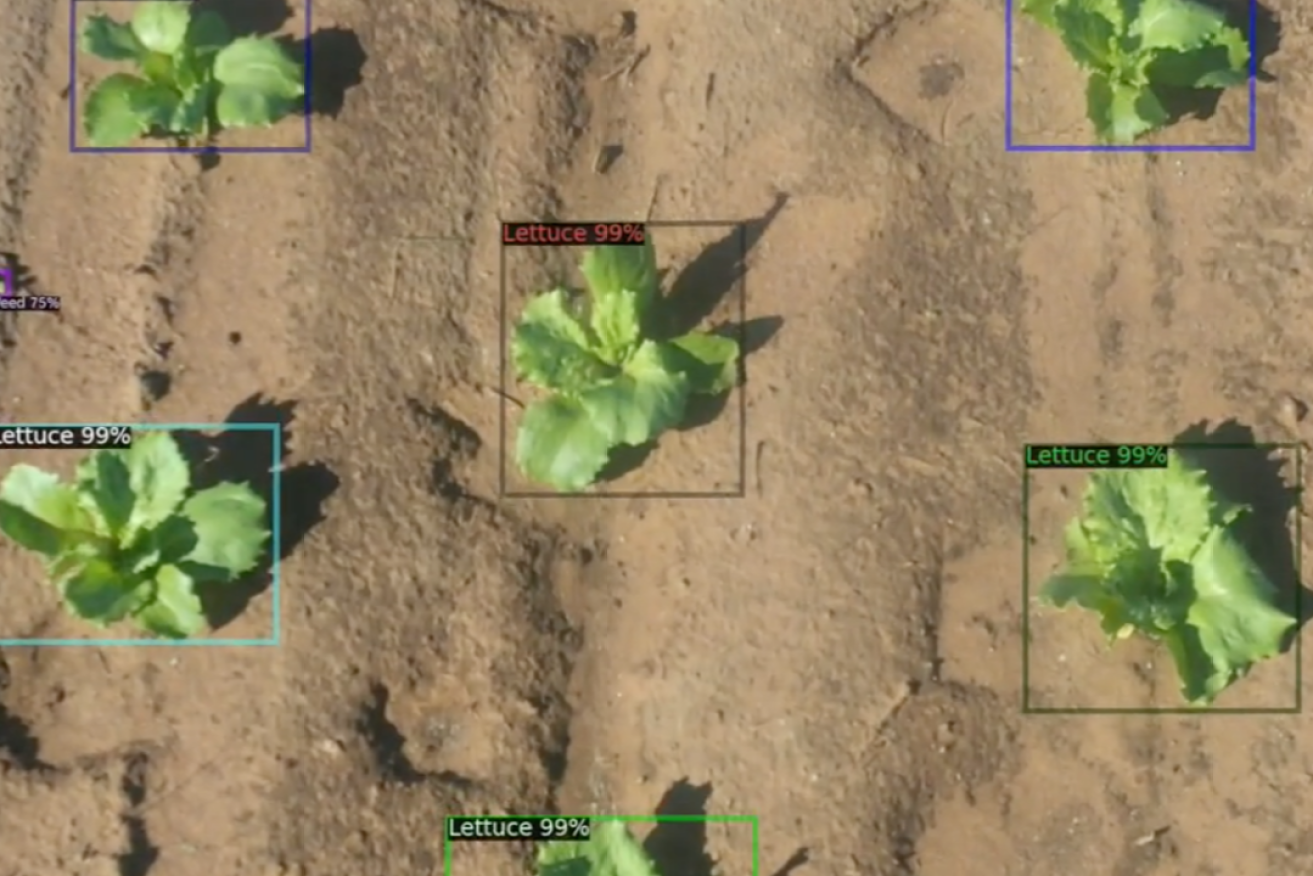Debating the future of Australian AgTech
Industry experts got together last week to discuss agriculture technology and the opportunities it presents to everyday investors.

Flux Robotics uses AI to differentiate between weeds and crops. Image: Flux Robotics.
Hosted by BDO and sponsored by Elders, the Agribusiness Australia networking event featured international keynote speaker Shifka Seigel from the Israel Australia Chamber of Commerce and panellists Michael Macolino from SVG Ventures Thrive (APAC) and Jordy Kitschke from Flux Robotics.
Dave McKeon, the director Agribusiness Australia, led the discussion which quickly turned to what has changed in the agtech ecosystem in the past decade and how Australians have reacted to these changes.
Isreal’s Shifka Seigel, an agtech expert who was in Adelaide to attend the international evokeAG AgriFutures conference, said that, in her experience, 10 years ago Australia was not looking at innovation internationally.
“Now, in the last six, seven years, Australians are looking at innovation internationally and collaborating internationally,” Seigel said.
She said the Australian industry has gone beyond just looking at its own ecosystem to look at what the world needs.
“I think that definitely Australia is a global leader in ag tech,” she said.
“What Australians are looking at in agtech is not just about creating solutions that look fancy, it’s creating solutions that will make a difference.”

The Agribusiness Australia panel at BDO included, from left to right, Dave McKeon, director Agribusiness Australia, Shifka Seigel, Israel Australia Chamber of Commerce, Jordy Kitschke, Flux Robotics, Michael Macolino, SVG Ventures Thrive (APAC). Photo: BDO
Jordy Kitschke, whose Adelaide-based company Flux Robotics makes robots to deliver pesticides in a much more controlled way than traditional methods, agreed the past decade has seen the industry develop into making things that solve real problems.
The InDaily 40 Under 40 alumnus and Jamestown native said that from a farmer perspective, it is much easier to convince farmers to trial ideas because in the past 10 years they have all adopted some sort of technology on their farms.
Kitschke said that from an entrepreneur’s perspective, however, the big difference has been the types of people investing in agtech.
“From an investment front I’d say the biggest driving change is the exits,” Kitschke said.
“A lot of the capital that’s coming into agtech investment is not from people who have an incredible understanding of agriculture. It’s from lots of family offices and investment banks and whatnot.”
Kitschke said the change occurred when half a billion to billion dollar exits began.
“This is probably what made investors realise, okay, you actually can get an enormous return in the sector. Before that you couldn’t really point to many examples of that happening,” he said
Venture capitalist Michael Macolino said that when he started to look at gaps in the industry five years ago, a lot of the agtech start-ups were trying to go down the traditional disruptive route and that didn’t work.
“So you had a lot of start-ups that were going out there and going against the agribusiness corporates or going against the sort of traditional industry norms and that didn’t really go anywhere because investors need an exit at some point,” Macolino, who is also an InDaily 40 Under 40 alumnus, said.
“And usually the exits are going to come not from an IPO, as most companies when they get to that point do, it’s going to come to some type of trade sale.
“We’ve seen that with John Deere, purchasing companies, Case IH buying companies, and there is a realisation that in order to have a successful venture-scale, investment-grade start-up, you need to see where your role is in agriculture in the industry.”
Macolino said this ecosystem reset hit during COVID, with entrepreneurs looking at what they could build that benefited agriculture internationally.
“They said ‘Okay, how can I build a robot, a new next generation of fertilizer sensor, a piece of software, that I can go and distribute through an agribusiness corporate’,” Macolino said.
“How can I build something that Bayer will distribute?
“So a much more integrated, systems-based approach of developing technology, that actually integrates with traditional agribusiness, traditional agriculture.”
Macolino said this then allowed investors to put in money and help connect those corporates with the start-up.
“Then eventually, those corporates will basically undertake a trade sale so they can integrate that technology into their supply chain and into their distribution,” he said.
“So that’s the biggest maturity thing that’s happening. in Australian agtech.”





